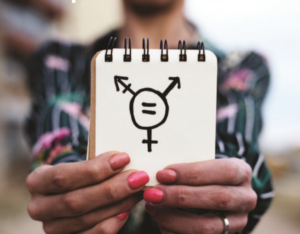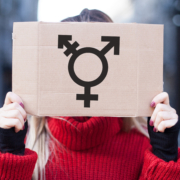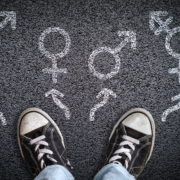The Supreme Court steps where politicians fear to tread
 ‘What is a woman?’ It’s the question that causes even seasoned politicians to break out in a cold sweat. We are currently awaiting a verdict from the UK Supreme Court, which is attempting to settle the question legally, once and for all. The hearing is the culmination of a long-running case, initially brought by campaigners contesting a piece of legislation at the Scottish Parliament, but that could have UK-wide implications.
‘What is a woman?’ It’s the question that causes even seasoned politicians to break out in a cold sweat. We are currently awaiting a verdict from the UK Supreme Court, which is attempting to settle the question legally, once and for all. The hearing is the culmination of a long-running case, initially brought by campaigners contesting a piece of legislation at the Scottish Parliament, but that could have UK-wide implications.
A panel of five judges (three male, two female) must decide whether a person who has a gender recognition certificate (GRC) – confirming their gender as female – is a ‘woman’ for the purposes of the Equality Act (EA).
How is a person’s sex to be defined in law? A GRC recognises a person’s self-declared sense of sexual identity as definitive. The EA views a person’s biological sex as definitive. Which definition will be established as holding precedence by the Court?
At root, this is a philosophical question. Put simply, the choice is between sex as an immutable biological reality, determined at conception by whether we inherit a Y or an X chromosome from our father, or sex as something we become, tying in ideas of identity development, a process influenced by multiple factors and with no fixed endpoint.
A semantic resolution of sorts has been achieved by understanding the terms ‘gender’ and ‘sex’ to refer to two different things in everyday speech. Consequently, a person may be a biological male but self-identify in gender terms as female (and vice versa) – transgender.
Trans ideology holds that where a person’s biological sex and gender identity are not congruent, then their gender identity defines that person. Identity trumps biology. The GRC trumps the birth certificate. What is a woman? Someone who identifies as a woman.
A traditional ontology, on the other hand, holds that a person’s sex is revealed by their body. If their gender identity is dissonant with their biology, then it is their sense of identity that is not ‘real.’ In this view, gender identity is a social construct. What is a woman? An adult human female.
The law faces the challenge of reconciling the gender recognition process with the Equality Act. The Supreme Court must decide how ‘sex’ will be defined within our legal system. Their decision will determine how the law will primarily understand the sex of trans people, with future implications including who may use single-sex spaces, who may compete in unisex sports, etc.
Christians, rooted in the biblical story of God and humanity, have a unique starting point – the ‘book of beginnings,’ Genesis. We learn there that God created humankind ‘in his own image’ – male and female by his very good design, different but complementary (Genesis 1:27). Sex is revealed as God’s gift in creation, our maleness or femaleness being declared in our bodies. God is good, and God has made us male and female. Knowing ‘who’ we are informs ‘how’ we are. Humans flourish when they align their lives with God’s good design and purpose.
So, what is a woman? The biblical answer is richer than either of the answers offered above. How about this for a start: She is created and loved by God, who is good and who only does good. She is a female person, made in God’s image for a loving relationship with God and with others in the community. She is designed, amongst other things, with the capacity for sexual partnership with a man in the intimacy of mutually faithful marriage and with the possibility of motherhood.
All this is clear before the point in the story where sin enters the picture, causing distortion of the ‘very good’ creation, including in our relationships with God, ourselves and others. Happily, this is not the end of the story. Good news comes with Christ. Turning back from sin, receiving forgiveness and new life through the Cross, and the power to live like Jesus through the Holy Spirit, the process of restoration gets underway. What was distorted through sin is being restored through grace, and we get to be both evidence of, and witnesses to, that grace until he comes again!
Listen to CMF’s latest podcast series, Womanhood: What our bodies tells us about God to discover more about what the Bible and Christianity have to say about womanhood and identity









Leave a Reply
Want to join the discussion?Feel free to contribute!